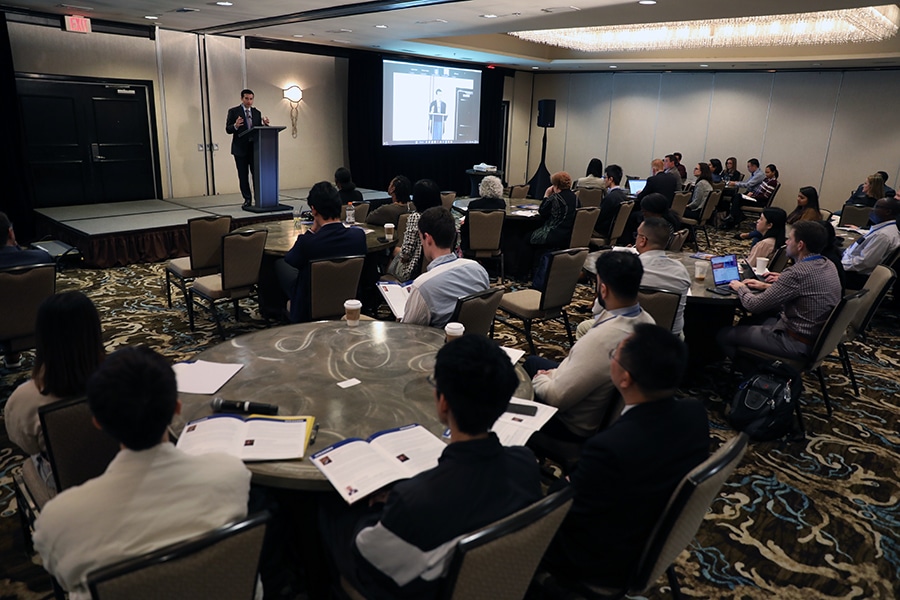
Reliable Research in Business
A new standard for organizational science research
What’s the relationship between company culture, benefits and job satisfaction? What role does personality play in collaboration and decision-making?
Organizational science examines how individual and group dynamics can be leveraged to improve workplace communication, introduce more effective policies and implement meaningful change. Yet, its relative newness and ongoing developments mean that researchers contend with variables that affect results, applications and evaluation.
NSF-funded research
The University of Florida Warrington College of Business launched the Reliable Research in Business initiative in 2018. This program, funded by the National Science Foundation, Division of Social and Economic Sciences (Award #1743044), aims to establish parameters for research in organizational science, as well as in the social, behavioral and economic sciences.
Behind our efforts, we have called upon academic journal editors, university faculty members, industry leaders, academic researchers, and students to develop and promote best practices for conducting new studies and evaluating the accuracy of existing ones.
Our initiative also holds workshops and presentations for researchers interested in developing effective, actionable scientific management theories and the publishers who disseminate their findings. Learn more about what we do, and review our recommendations and past presentations.

About us
Recognizing the challenges present in conducting and reviewing organizational science research, Warrington Associate Professor Gwendolyn Lee proposed the Reliable Research in Business initiative to create more uniform standards for structuring studies, verifying and reproducing data, and identifying insufficient or falsified findings.
Our mission
This initiative, supported by Warrington’s prolific Department of Management, aims to uncover and publicize possible solutions for reproducibility, replicability, generalizability and peer review.
What we do
Our work continually defines guidelines for testing hypotheses, empirical inquiry, causal inference, citations and accuracy, and editorial practices.
Effects and long-term goals
We believe that reducing biases and errors in organizational science research depends on training future scholars in statistical and research methods and implementing error detection systems at all stages of a study’s progress and review.
What is reliability in business research?
Our presentations and thought leadership aim to advance the following:

Theory development
Practices for rigor, transparency, and exactness in research contribute to more consistent studies and set precedents for replication, testing theories in different contexts, and understanding the causes and effects of irresponsible research.

Methodology
Reliable Research in Business pushes for clarity throughout the research process: data gathering, design, analysis, testing, trials and determining when a theory might not apply.

Publishing and review
Extending precision and transparency to peer review and publishing helps create more accurate evaluations and allows journal editors and other reviewers to debunk research or flag it for a lack of statistical support.
Our focus
We angle our activity to enrich and produce clearly defined standards for:
Reproducibility
How to duplicate the results of a prior study using the same materials and procedures used by the original investigator.
Replicability
How to duplicate the results of a prior study if the same procedures are followed but new data are collected.
Generalizability
How to verify whether the findings of a study apply in other contexts or to populations that differ from the original focus.
Training and developmental guidance
How to encourage more rigorous and useful research in terms of theorizing, study design, testing and reporting.

Past presentations
In this series of videos, expert speakers present on topics related to structuring or evaluating organizational science research.

Support our initiative
Interested in imagining the future of management science scholarship? Contact us to get involved:
Contact us
Gwendolyn Lee
Chester C. Holloway Professor
Associate Professor
Management Department
352-846-2694